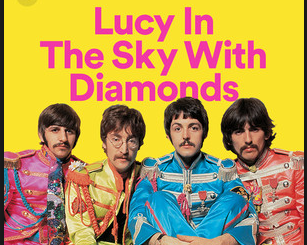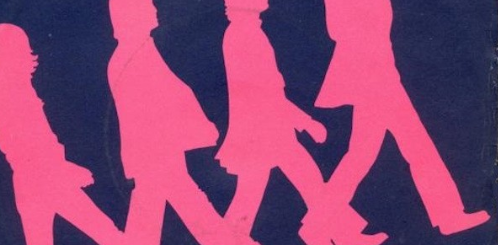Misery by The Beatles Lyrics Meaning – Unpacking the Heartache in an Early Fab Four Classic
Lyrics
I’m the kind of guy
Who never used to cry
The world is treatin’ me bad, misery
I’ve lost her now for sure
I won’t see her no more
It’s gonna be a drag, misery
I’ll remember all the little things we’ve done
Can’t she see she’ll always be the only one, only one
Send her back to me
‘Cause everyone can see
Without her I will be in misery
I’ll remember all the little things we’ve done
She’ll remember and she’ll miss her only one, lonely one
Send her back to me
‘Cause everyone can see
Without her I will be in misery (oh oh oh)
In misery (ooh ooh ooh)
My misery (la la la la la la)
In the pantheon of The Beatles’ discography, their early track ‘Misery’ often flies under the radar, overshadowed by the colossal hits that would later define the band’s legacy. However, this seemingly straightforward song of heartbreak carries within it the seeds of the band’s lyrical and emotional depths that would later bloom. Released in 1963 as part of their debut album ‘Please Please Me,’ ‘Misery’ encapsulates the quintessential essence of the young Beatles, as they blend melancholic themes with melodious pop sensibilities.
Yet to dismiss ‘Misery’ as just another pop tune bemoaning lost love is to overlook the nuances that make The Beatles a timeless cultural phenomenon. Here’s a deep dive into the emotional layers and lyrical craftsmanship behind one of their earliest expressions of sorrow, unearthing what makes ‘Misery,’ a song about universal suffering, a poignant piece that still resonates with audiences today.
A Raw Glimpse Into Unfiltered Emotion
‘Misery’ may present itself as a simple ditty about the pains of young love, which might seem paltry against the backdrop of The Beatles’ later, more complex compositions. Yet the simplicity is what makes it raw and relatable. The opening line, ‘The world is treating me bad, misery,’ establishes a personal relationship with despair that listeners of any era can connect with. It’s a stripped-down acknowledgment of the weight that emotional turmoil can place on one’s shoulders.
The transparency with which the song discusses the impact of a heartbreak makes it incredibly human. The Beatles, particularly John Lennon and Paul McCartney, who penned the song, are not portraying themselves as above the average person; they too can be vulnerable, they can be affected by the whims of love, and they can find themselves subject to the harsh realities of emotional distress. This relatability is part of the song’s enduring charm.
Unveiling The Beatles’ Lyrical Genius
To the inattentive ear, ‘Misery’ might sound like a jingle of teenage angst, but it bears the early imprints of Lennon and McCartney’s evolving songwriting prowess. The lyric ‘I’m the kind of guy/Who never used to cry’ hints at a deeper backstory of a protagonist who once felt impenetrable until love’s departure proved otherwise. It’s a prelude to the thematic complexity the songwriting duo would later master.
The song’s structure also deviates from the repetitive patterns typical of early rock and roll. While ‘Misery’ stays rooted in verse-chorus form, the repetitive plea, ‘Send her back to me,’ is where it gains its hypnotic force. Each repetition is a further descent into longing, an echo growing in the empty space left by the absent lover. This lyrical repetition, a device The Beatles would famously employ in future works, is part and parcel of the song’s piercing emotional delivery.
Dissecting the Sonic Landscape of Sorrow
Musically, ‘Misery’ aligns with the early Beatles’ sound, a blend that would soon take the world by storm. Yet within its upbeat tempo and the crisp harmonies lies a musical duality. The uptempo beat paired with the sorrowful text creates a juxtaposition that amplifies the agony being expressed. The listener is caught between bopping along to the catchy tune and sinking into the heartfelt despair the lyrics convey.
John Lennon’s lead vocal performance carries the weight of every word with a certain rawness, and the harmonies provided by McCartney lace the song with a poignant, almost haunting quality that foreshadows the sophisticated vocal arrangements they would become renowned for.
The Song’s Hidden Meaning: More Than Just A Love Story
While a surface reading of ‘Misery’ would label it as a customary broken heart ballad, a more attentive exploration may reveal a hidden undercurrent. Is ‘Misery’ also an early meditation on the overwhelming pressures of sudden fame? As Beatlemania was about to engulf them, could it be that Lennon and McCartney were expressing a subconscious dread of what was to come, a plea for normality amidst the chaos?
There’s an argument to be made that ‘Misery’ is the echo of personal turbulence, a ballad that doubles as a band’s commentary on the burgeoning demands of their skyrocketing career. This duality would soon become a Beatles’ hallmark, where personal and professional narratives interweave, creating songs with layers of interpretation.
Memorable Lines That Resonate Across Generations
It’s perhaps the song’s simple yet memorable lines that ensure its timelessness. Phrases like ‘It’s gonna be a drag, misery’ resonate for their colloquial truth—misery is indeed a drag, an unwelcome companion that lingers. The repetition of ‘in misery’ throughout the song serves not only as a reminder of the protagonist’s state but also as an anthem for all those who have felt the sting of a desolate heart.
Crucially, ‘Misery’ elevates everyday language into the realm of the universal, encapsulating a feeling shared across time and space. It’s in these lines that the listener finds solace, the solace that comes from knowing that even their idols, The Beatles, once sang of the same mundane heartaches that we all experience, cementing an unspoken kinship between the song and its audience.








